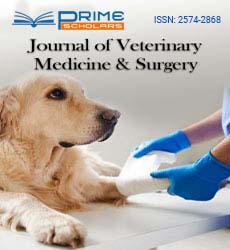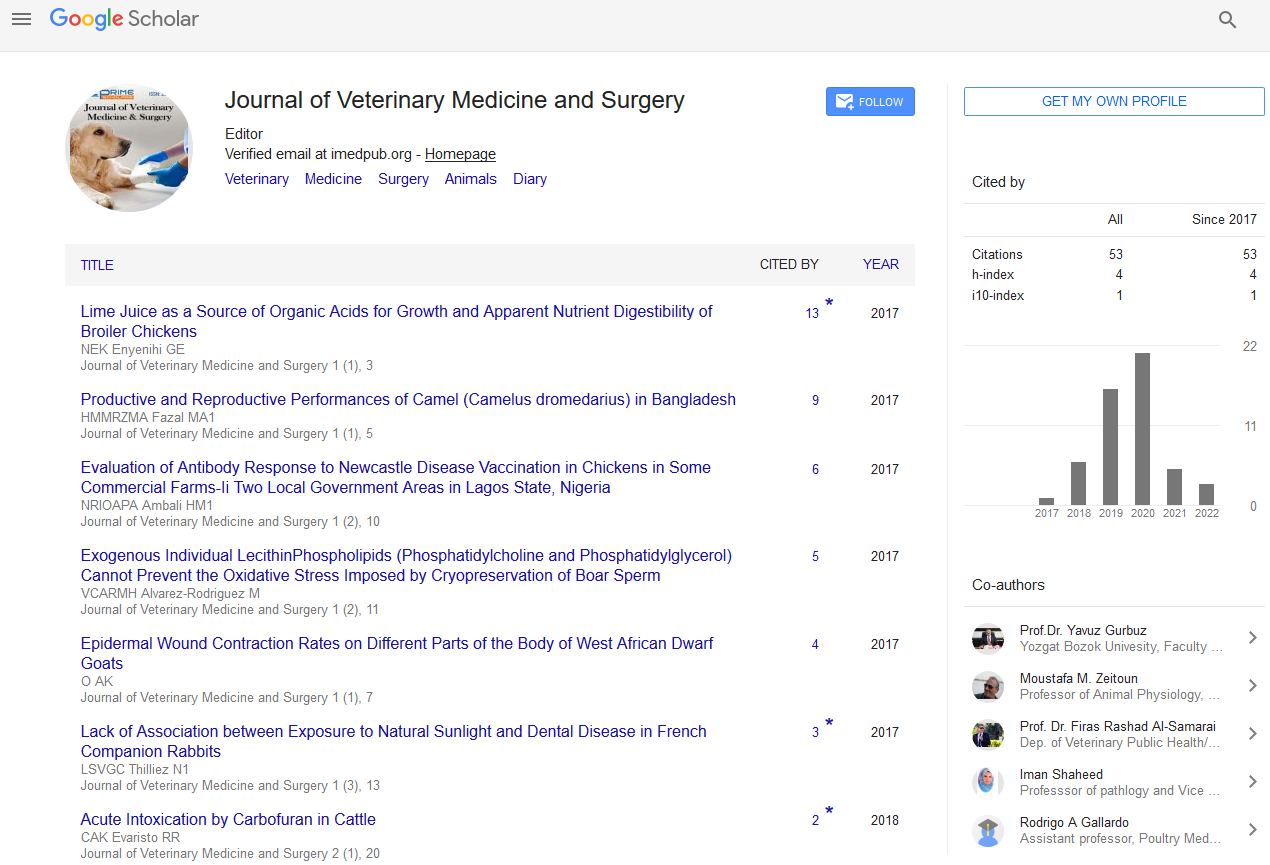Opinion - (2023) Volume 7, Issue 3
Nutritional Considerations for Bovine Health and Productivity: A Comprehensive Guide
Yujun Ding*
Department of Food Science, Northeast Agricultural University, China
*Correspondence:
Yujun Ding,
Department of Food Science, Northeast Agricultural University,
China,
Email:
Received: 30-Aug-2023, Manuscript No. IPJVMS-23-19158;
Editor assigned: 01-Sep-2023, Pre QC No. IPJVMS-23-19158 (PQ);
Reviewed: 15-Sep-2023, QC No. IPJVMS-23-19158;
Revised: 20-Sep-2023, Manuscript No. IPJVMS-23-19158 (R);
Published:
27-Sep-2023, DOI: 10.36648/2574-2868.7.3.27
Introduction
Animal nutrition is a cornerstone of bovine health and productivity,
playing a pivotal role in ensuring optimal growth, reproduction,
and overall well-being. The nutritional requirements
of cattle are diverse and depend on various factors, including
age, breed, physiological status, and production goals. In this
comprehensive guide, we will explore the essential components
of bovine nutrition, including the key nutrients, dietary
considerations, feeding practices, and the impact of nutrition
on different life stages and production systems. Protein is a
crucial macronutrient for bovine health, supporting muscle
development, immune function, and milk production in lactating
cows. The protein requirements vary based on the physiological
stage of the animal, with growing calves and lactating
cows having higher protein needs. Common protein sources in
bovine diets include forages, grains, oilseeds, and protein supplements.
Carbohydrates, primarily in the form of fiber, sugars,
and starches, are essential for providing energy to cattle. Forages,
such as grasses and legumes, are rich sources of fiber,
supporting proper digestion and rumen function. Grains, on
the other hand, contribute starch, a concentrated source of energy.
Balancing the types and proportions of carbohydrates is
crucial for maintaining digestive health and optimizing energy
utilization. Dietary fats, or lipids, are valuable sources of concentrated
energy for cattle.
Description
Vitamins are essential micronutrients that play diverse roles
in bovine metabolism. Key vitamins include vitamin A, vital for
vision and immune function; vitamin D, necessary for calcium
absorption and bone health; and vitamin E, with antioxidant
properties. B-vitamins, such as B12 and riboflavin, are crucial
for energy metabolism. Adequate vitamin levels are often
achieved through a well-balanced diet, but supplementation
may be necessary in certain situations. Minerals, including calcium,
phosphorus, magnesium, potassium, and trace minerals
like copper, zinc, and selenium, are critical for various physiological
functions in cattle. Maintaining proper mineral balance
is essential for bone development, nerve function, enzyme
activity, and overall health. Deficiencies or excesses can lead
to disorders such as hypocalcemia, phosphorus deficiency, or
copper toxicity. Forages, such as pasture, hay, and silage, form
the foundation of many bovine diets. They provide essential fiber
for rumen health and contribute a significant portion of the
necessary nutrients. Pasture rotation and proper forage management
are crucial for optimizing nutrient intake, supporting
weight gain, and minimizing the risk of nutrient imbalances.
Concentrate feeds, including grains and protein supplements,
are often used to supplement forage-based diets, particularly
in intensive production systems. Grains like corn, barley, and
oats provide concentrated energy, while protein supplements
such as soybean meal or canola meal contribute essential amino
acids.
Conclusion
Bovine nutrition is a complex and multifaceted aspect of cattle
management, influencing not only the health and well-being of
individual animals but also the overall productivity of herds. A
comprehensive understanding of the nutritional requirements,
dietary considerations, and feeding practices for different life
stages and production systems is crucial for successful cattle
husbandry. As the field of animal nutrition continues to evolve,
embracing innovative approaches and sustainable practices
will be instrumental in meeting the nutritional needs of cattle
while ensuring the long-term viability of the livestock industry.
Through careful management and ongoing research, cattle producers
can optimize nutrition programs to support healthy and
productive herds, contributing to the sustainability of global
agriculture.
Citation: Ding Y (2023) Nutritional Considerations for Bovine Health and Productivity: A Comprehensive Guide. J Veterinary Med. 7:27.
Copyright: © 2023 Ding Y. This is an open-access article distributed under the terms of the Creative Commons Attribution License, which permits unrestricted use, distribution, and reproduction in any medium, provided the original author and source are credited.

